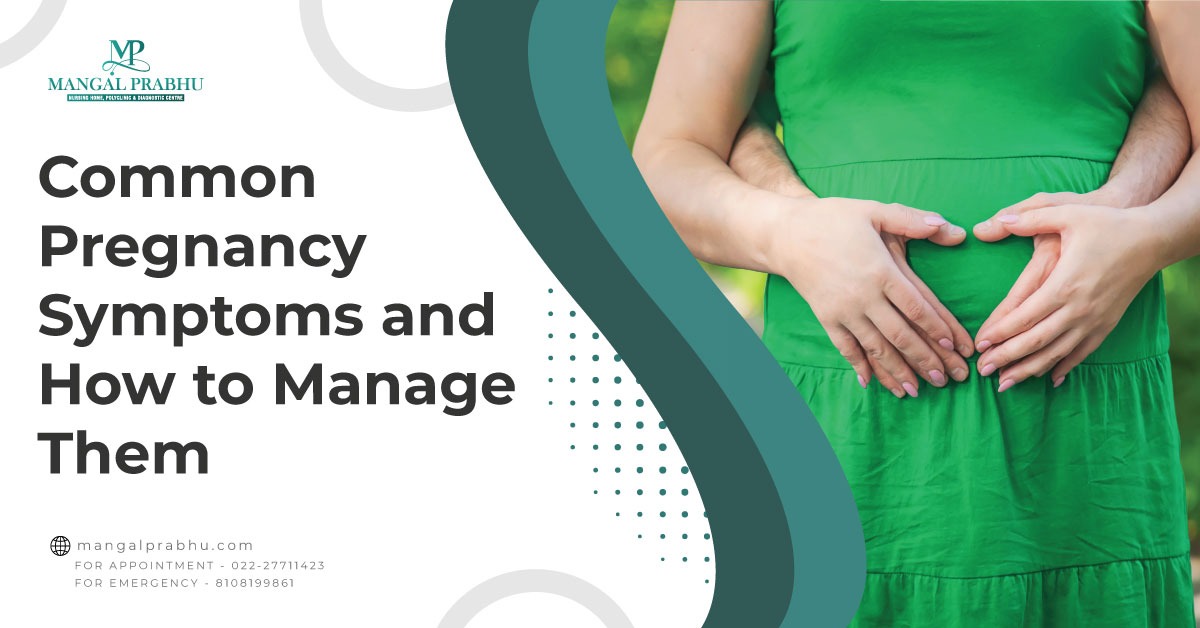
10 Most Common Pregnancy symptoms and how to manage them.
Pregnancy is an exciting time, but it can also come with a range of symptoms that can be uncomfortable or even painful. These symptoms can be caused by hormonal changes, changes in the body, and increased blood flow to the uterus.
According to one of the Gynaecologist in Navi Mumbai, here are some of the most common pregnancy symptoms and tips on how to manage them.
Most common pregnancy symptoms and tips on how to manage them:
1. Morning sickness:
Morning sickness is one of the most common symptoms of pregnancy. It usually occurs in the first trimester and can include nausea, vomiting, and fatigue. To manage morning sickness, it is important to eat small, frequent meals throughout the day, stay hydrated, and avoid foods that trigger nausea. Ginger and peppermint tea can also be helpful in easing nausea.
2. Fatigue:
Pregnancy can cause fatigue, especially in the first and third trimesters. To manage fatigue, it is important to prioritize rest and get plenty of sleep. Napping during the day and taking breaks when needed can also help.
3. Back Pain:
As the baby grows, it can put pressure on the lower back and cause pain. To manage back pain, it is important to maintain good posture, avoid standing or sitting for long periods of time, and use a pregnancy pillow for support when sleeping.
4. Constipation:
Hormonal changes during pregnancy can slow down digestion, leading to constipation. To manage constipation, it is important to drink plenty of water, eat fiber-rich foods, and stay physically active.
5. Swelling:
Pregnancy can cause swelling in the hands, feet, and legs. To manage swelling, it is important to stay hydrated, rest with your feet elevated, and wear comfortable supportive shoes.
Also Read: Breastfeeding And Your Sleep- How Do You Rest When The Baby Needs You All The Time?
6. Heartburn:
Hormonal changes during pregnancy can cause heartburn and acid reflux. To manage heartburn, it is important to eat smaller, more frequent meals, avoid spicy or acidic foods, and avoid lying down immediately after eating.
7. Mood swings:
Hormonal changes during pregnancy can cause mood swings and anxiety. To manage mood swings, it is important to practice self-care, prioritize rest and relaxation, and talk to a healthcare provider if symptoms persist.
8. Varicose veins:
Pregnancy can cause varicose veins, which are swollen veins in the legs. To manage varicose veins, it is important to stay physically active, avoid standing or sitting for long periods of time, and wear compression stockings.
9. Braxton Hicks contractions:
Braxton Hicks contractions are common in the third trimester and can feel like mild cramping or tightening of the uterus. To manage Braxton Hicks contractions, it is important to stay hydrated, rest when needed, and practice relaxation techniques like deep breathing.
10. Stretch marks:
As the baby grows, the skin can stretch and cause stretch marks. To manage stretch marks, it is important to stay hydrated, use a moisturizing lotion or oil, and wear clothing that is comfortable and not too tight.
Conclusion:
In conclusion, pregnancy can come with a range of symptoms that can be uncomfortable or even painful. However, with proper management and care, many of these symptoms can be minimized or eliminated. It is important to talk to a healthcare provider if you have any concerns or symptoms that persist.
A lot of people may be concerned with the expenses that come with healthcare needs, especially for pregnant women but there are centers now that are budget-friendly, an affordable pregnancy hospital in Navi Mumbai is known for efficient and advanced care with the moderate expense.
With the right care and support, pregnancy can be a happy and healthy experience for both you and your baby
